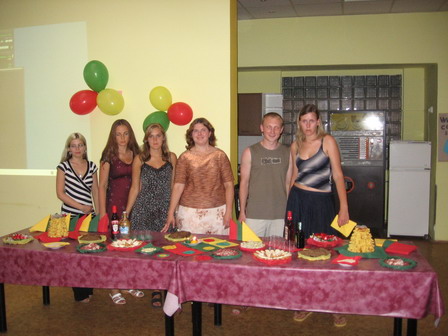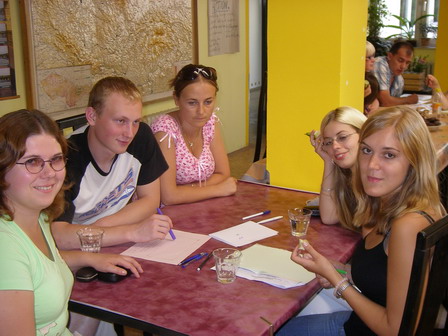Blind Friendly zobrazení
Grafické zobrazení
Spoluúčast - LOTYŠSKO
In 1991, the Lithuanian Association of the Blind and Visually Handicapped joined the European Blind Union
In 1992, the Lithuanian Association of the Blind and Visually Handicapped became the full and equal member of the World Blind Union. Since then, the International White Cane Day on October 15th has been marked in Lithuania every year
In 1996, the Lithuanian Association of the Blind and Visually Handicapped celebrated its 70 year anniversary
In 1998, the 70 year anniversary of education of the blind in Lithuania was marked
Lithuanian
Association of the Blind and Visually Handicapped
Lietuvos
aklřjř ir silpnaregiř sŕjunga (LASS)
Labdariř
7/11, Vilnius 01120
Tel.:
(+370 5) 2624866
Tel/fax:
(+370 5) 2121464
E-mail:
ct@lass.lt
Chairman
Osvaldas Petrauskas
The
organisation was founded in 1926
Organisational Structure
LASS itself covers 57 primary organisations, belonging to 5 district organisations (Kaunas & Marijampolë, Klaipëda & Telđiai, Panevëţys & Utena, Điauliai & Tauragë, Vilnius & Alytus).
Each regional LASS centre has its own LASS district council, an enterprise (two enterprises in Vilnius), a cultural centre (club-house in Panevëţys), and a branch of the Lithuanian Library for the Blind (LAB). Since 1992, LAB has been under the auspices of the Ministry of Culture.
The Central Council of LASS, the Lithuanian Chorus of the Blind "Vilnius" and LASS Magazine "Műsř ţodis" are situated in Vilnius.
Objectives
Putting into practice the rights of the blind and visually impaired to work, living, education and cultural services, as declared by the laws of the Republic of Lithuania
Protection of the blind and visually impaired people from exploitation, discrimination, and humiliation
Introduction of the objectives, tasks and results of the LASS's activities to the general public
Activities
LASS:
Unites people with visual disability
Cooperates with governmental institutions, seeks for adoption of normative acts favourable to people with visual disability
Assists the Government eliminating problems of the visually disabled. Prepares and implements programmes in such fields as rehabilitation, upbringing, occupational training and employment, adapted technology provision, health education, etc.
Aims to achieve the true integration of the blind and visually impaired into the open society
Seeks to adapt surroundings for people with visual disability
Publishes various publications for visually disabled people, cares for proper library services for them, and informs the general public


